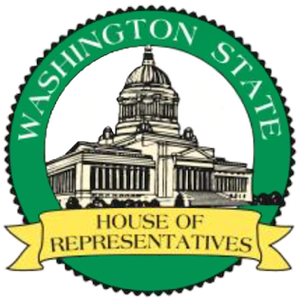The Washington State House of Representatives (WA House) convenes sessions to read, debate, amend, and vote on legislation.
Second and Third Reading
- HB 1105 - "Concerning arrest protections for the medical use of cannabis."

The Washington State House of Representatives (WA House) convenes sessions to read, debate, amend, and vote on legislation.
A solid majority of representatives in the Washington State House voted to extend arrest protections to authorized medical cannabis patients and caregivers who choose not to register with the State.
Here are some observations from the Monday March 1st Washington State House of Representatives (WA House) morning session.
My top 3 takeaways: